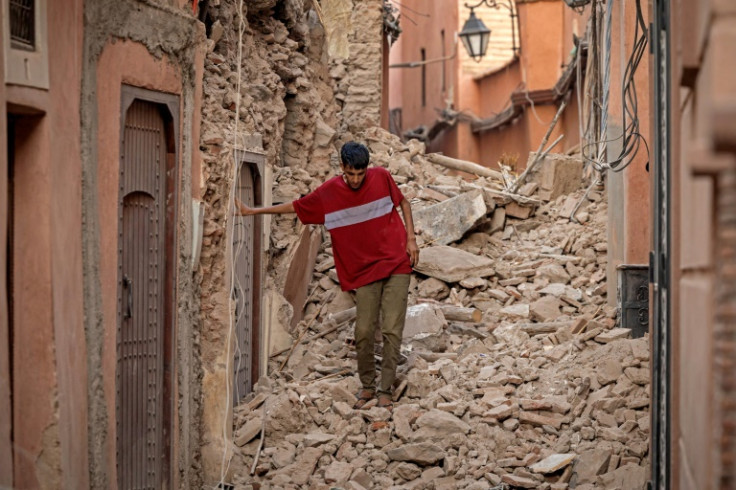UK Announce Climate Aid At COP28 After Second Earthquake Rocks The Philippines
After a violent earthquake rocked the Philippines for the second time in two weeks, Sunak announced that the UK will be providing countries vulnerable to climate change with funding.

On Sunday 3 December, while attending the COP28 summit, Prime Minister Rishi Sunak announced that the UK will be providing countries vulnerable to climate change with a funding package.
The UK pledge sets out to strengthen the nation's resilience to the severe effects of the current climate crisis, weather extremes push around 26 million people into poverty each year.
The grant recognises the severity of climate impacts and considers how between the years 2000 and 2019, a staggering 11,000 extreme weather events killed more than 475,000 people – according to an International Labour Organisation report.
The financial means come as part of the UK's climate aid, which was announced by the Prime Minister last week and will see £1.6 billion distributed amongst vulnerable communities.
Andrew Mitchell, the Minister for International Development and Africa, recognised: "The devastating effects of climate change hit the most vulnerable the hardest."
"These funding commitments will help countries and people be better prepared and protected against extreme weather events and natural disasters," he added.
So far this year, climate change has led to weather extremes like flooding, drought, wildfires, cyclones and earthquakes.
Just two days ago, on Saturday 2 December, an earthquake that hit the Philippines left four people injured and nine people missing.
Last week's earthquake, which rocked the second largest island of the Philippines, Mindanao, marks the second time that the island has been rocked in the past 14 days.
A pregnant woman was also killed by the natural disaster that shook the island with a 7.6 magnitude, according to the US Geological Survey. The Philippine Institute of Volcanology and Seismology, however, measured the rocking at 7.4.
More video of the M7.6 earthquake that struck the Philippines on Saturday 😱 pic.twitter.com/VNsVw0Qo01
— Volcaholic 🌋 (@volcaholic1) December 4, 2023
Several major aftershocks, including four that measured a magnitude of more than 6.0, triggered tsunami warnings across the region.
Although the tsunami alert was relaxed later on, the Philippine Institute of Volcanology and Seismology said that the quake was so intense that it caused at least 600 aftershocks with magnitudes ranging from 1.4 to 6.2.
Tsunami waves were seen from the northeast of the Philippines, with experts in Japan measuring the waves of up to 0.4 metres.
The UK climate funding will be put towards strengthening early warning systems in countries on the front line of climate change. The piece of equipment will provide the public, healthcare workers and emergency staff with advanced warnings of cyclones, earthquakes, flooding and other extreme weather events.
The early warnings will give civilians additional time to get to 'safe zones', where they are protected and less likely to be affected by the disasters.
Part of the funding will also be donated to the health care facilities in the vulnerable areas specifically.
Hospitals and other medical buildings will be upgraded to reduce the impact of disasters on staff and patients – particularly flooding. Flooding has been known to cause a number of infections and diseases within hospital facilities, including cholera and malaria.
"The UK will continue to press for a bold and ambitious approach to support those on the frontline of our changing climate, and to create a safer planet for us all," the International Development and Africa Minister promised.
The UK pledge comes after Sunak was warned that world leaders "have noticed" his backtracking on net zero promises.
After announcing the pledge at COP28, the Prime Minister was criticised by Labour Leader Keir Starmer.
Starmer pointed the finger at Sunak for attempting to "polarise the debate" on the current climate crisis by "casting aside global leadership".
"If we do not hit the targets, it will be a disaster which is measured in floods in fires in all sorts of catastrophes across the world," the Labour Leader said.
© Copyright IBTimes 2025. All rights reserved.




















